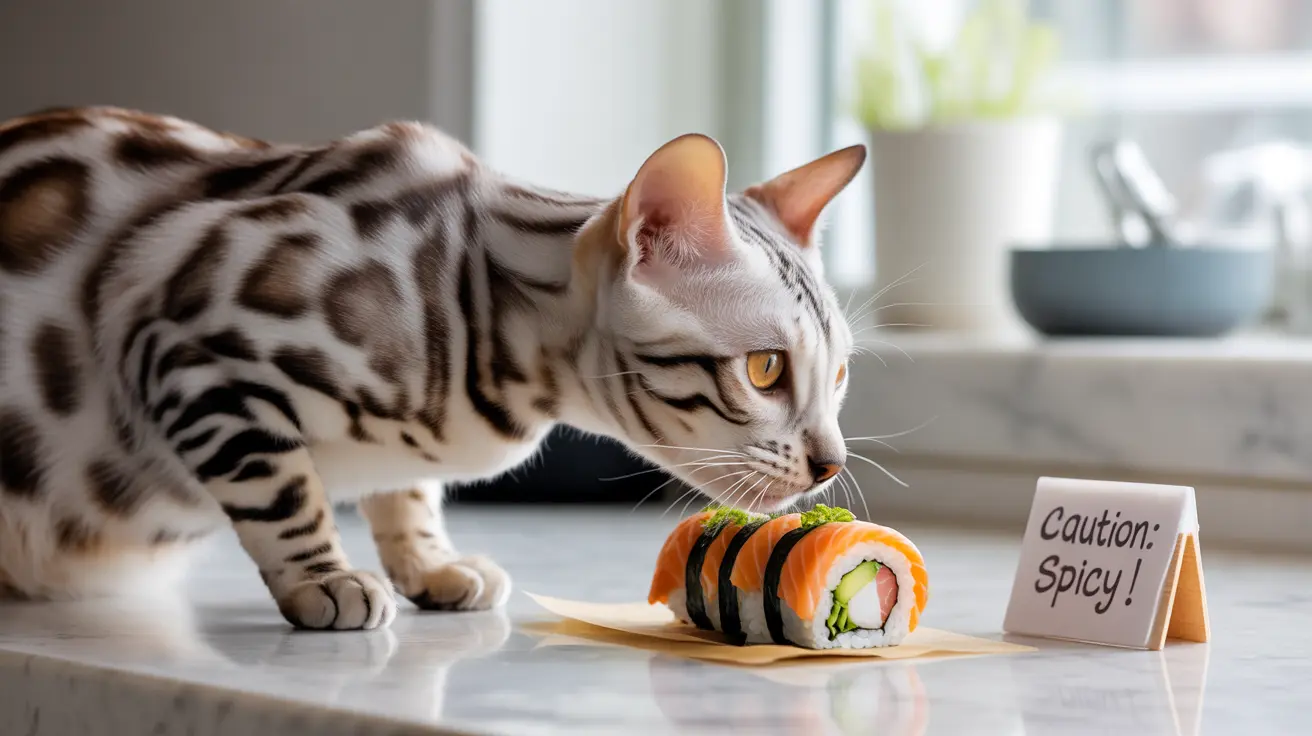As a cat owner, you might be tempted to share your favorite sushi roll with your feline friend. After all, cats love fish, right? However, the question "can cats eat sushi?" requires a careful and nuanced answer. While cats are natural fish lovers, sushi presents several potential health risks that every pet parent should understand.
In this comprehensive guide, we'll explore the safety concerns surrounding feeding sushi to cats, identify which ingredients might be acceptable in moderation, and explain why veterinarians generally advise against sharing this popular human dish with our feline companions.
Understanding the Risks of Feeding Sushi to Cats
While cats may be drawn to the fish components in sushi, several serious health risks make this Japanese delicacy potentially dangerous for felines:
Raw Fish Dangers
Raw fish, a common ingredient in sushi, can harbor dangerous parasites and bacteria that pose significant health risks to cats. These include Salmonella, E. coli, and various parasitic worms that can cause severe gastrointestinal issues and other health complications.
Additionally, raw fish contains an enzyme called thiaminase that breaks down thiamine (vitamin B1) in cats. Thiamine deficiency can lead to serious neurological problems, including seizures and, in severe cases, death.
Problematic Ingredients
Many sushi rolls contain ingredients that are harmful or toxic to cats:
- Soy sauce and wasabi (toxic due to high sodium content)
- Garlic and onions (highly toxic to cats)
- Rice (offers no nutritional value and often contains sugar and vinegar)
- Cream cheese (can cause digestive issues)
- Avocado (while the flesh is safe in small amounts, the skin and pit are toxic)
Safe Alternatives to Sushi for Cats
If you want to treat your cat to something special, consider these safer alternatives:
- Plain, cooked fish (thoroughly deboned)
- Small pieces of cooked, unseasoned shrimp
- Commercial cat treats formulated specifically for felines
- Small amounts of plain, cooked chicken or turkey
When to Contact Your Veterinarian
If your cat has consumed sushi, watch for these warning signs that require immediate veterinary attention:
- Vomiting or diarrhea
- Lethargy
- Loss of appetite
- Unusual behavior or disorientation
- Difficulty walking or balance issues
Frequently Asked Questions
Is it safe for cats to eat sushi with raw fish?
No, it's not safe for cats to eat sushi containing raw fish. Raw fish can contain harmful parasites and bacteria, plus an enzyme that destroys essential vitamin B1 (thiamine) in cats.
What health risks can raw fish in sushi pose to cats?
Raw fish in sushi can expose cats to dangerous parasites, bacteria (like Salmonella and E. coli), and thiaminase enzyme that destroys vital nutrients. It may also contain mercury and other heavy metals.
Are there any sushi ingredients that are safe to feed my cat?
Small amounts of plain, cooked fish or shrimp without seasonings can be safe as occasional treats. However, these should be thoroughly deboned and served without any sushi accompaniments.
Why should I avoid giving my cat sushi rice and seasonings like soy sauce?
Sushi rice provides no nutritional value for cats and often contains sugar and vinegar. Seasonings like soy sauce are extremely high in sodium and can be toxic to cats.
What should I do if my cat accidentally eats sushi containing harmful ingredients?
Monitor your cat closely for signs of illness such as vomiting, diarrhea, or unusual behavior. If you notice any concerning symptoms, contact your veterinarian immediately.
Conclusion
While it might be tempting to share sushi with your cat, the risks generally outweigh any potential benefits. Instead of offering sushi, stick to a balanced, veterinarian-approved diet supplemented with cat-safe treats when desired. This approach will help ensure your feline friend stays healthy and happy while avoiding unnecessary health risks.






